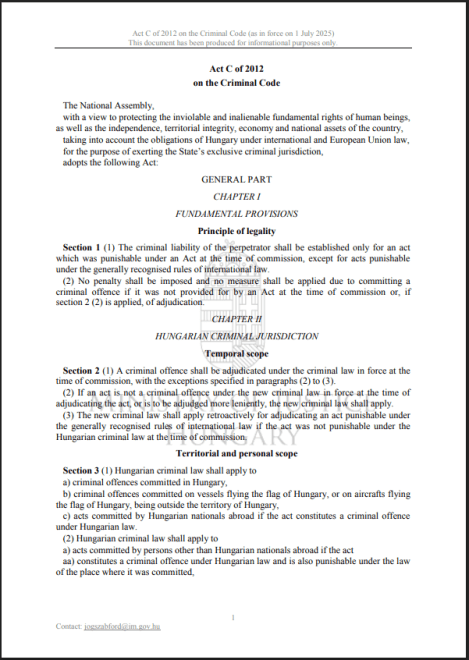🚨 Hungary’s Crypto Clampdown: 5-Year Prison Threat for Unauthorized Digital Asset Trading
Hungary just dropped a regulatory hammer—unauthorized crypto trading now carries a five-year prison sentence. Welcome to the Wild East of digital finance.
### The Iron Fist Approach
Budapest isn't messing around. While other nations debate crypto frameworks, Hungary's going straight for the jugular—treating unlicensed trading like grand larceny. Suddenly that 'decentralized' dream feels awfully centralized.
### Compliance or Consequences
The law's crystal clear: play outside government sandboxes, do hard time. Critics call it draconian; bureaucrats insist it's 'investor protection.' Meanwhile, Hungarian crypto OGs are either going underground or polishing their LinkedIn profiles.
### The Global Ripple Effect
Watch closely—this could become the blueprint for authoritarian-leaning regimes. Nothing screams 'financial innovation' like threatening citizens with prison for peer-to-peer Bitcoin trades. Bonus irony: the same lawmakers probably still think blockchain is a prison accessory.
Strict Penalties For Crypto Traders
According to the new code, anyone swapping between HUF 5 million and HUF 50 million on an unauthorized platform may be sentenced to up to two years in prison.
Anybody whose trading volume falls between HUF 50 million and HUF 500 million (about $145,950–$1.46 million), could serve up to three years behind bars.
And those moving more than HUF 500 million face a term of up to five years. Each tier scales the penalty based solely on how much money changes hands.

Service Providers Face Harsher Terms
Based on reports, companies running unlicensed exchange services are in even deeper trouble. Providers handling up to HUF 50 million risk a prison sentence of up to three years.
If they process between HUF 50 million and HUF 500 million, they might spend as long as five years in jail. And any firm that handles more than that amount can be penalized with up to eight years in prison.
The fallout has already begun. Revolut, the UK‑based fintech app used by many Hungarians, stopped all crypto buying, selling and staking. A notice to local customers blamed “the recently introduced Hungarian legislation.”
Users now can’t deposit or cash out their digital tokens until Revolut sorts out its legal position. For some, that means weeks or even months of waiting.
Comparisons With Other MarketsOther parts of the world have criminalized unlicensed crypto services. The US, the UK, Hong Kong, and South Korea all fine or jail unlicensed operators, but they rarely go after everyday traders.
Singapore recently warned its local firms to quit serving overseas clients without a license, under threat of up to three years in prison or a fine of SG$250,000. Yet Hungary stands out for targeting private users based on their transaction amounts.
Hungary’s Supervisory Authority for Regulatory Affairs has 60 days from 1 July to set clear rules. Until then, nobody knows how to get the mandatory “validation certificate” that every authorized exchange must hold.
Featured image from Goway, chart from TradingView

